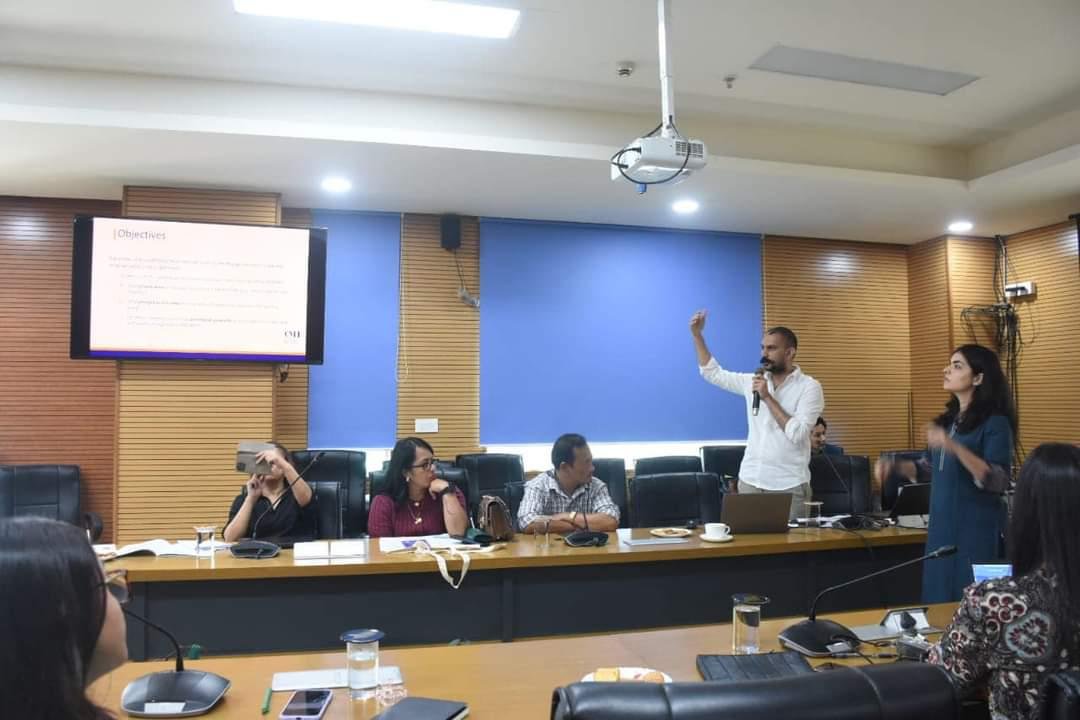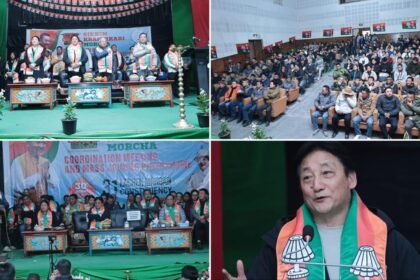GANGTOK: The three-day Multi-Stakeholder Consultation on Youth Mental Health and Suicide Prevention, organised by the Health & Family Welfare Department under the Sikkim INSPIRES programme in collaboration with the Centre for Mental Health Law and Policy, successfully concluded on September 12.
The day-long workshop brought together key stakeholders including policymakers
from Planning and Development Department, Health & Family Welfare Department (H&FW), State Council of Educational Research and Training (SCERT) under Education Department, Women and Child Development Department, UNDP, nonprofit organisations including Jhpiego, Freedom, representation from Tele MANAS under H&FW, civil society representatives, youth with lived experience and the team from Centre for Mental Health Law and Policy (CMHLP), Indian Law Society (ILS).
The final day featured a ‘Theory of Change’ consensus-building workshop, where participants shared the findings from the discussions held over the past three days, since September 9.
After the initial context setting by Dr Soumitra Pathare, Director, CMHLP, Indian Law Society, the participants were briefed about the core objective of the workshop.
Ms Amiti Verma, Program Manager and Research Fellow at CMHLP, Indian Law Society made a brief presentation of the points discussed during the consultations.
It maybe informed, consultations were held with Government stakeholders on September 9 and the civil society stakeholders on September 10.
These consultations focused on
-Drivers impacting youth mental health and suicide prevention in Sikkim
-Institutional policy and service gaps for addressing youth mental health and suicide prevention in Sikkim
-Good practices and strategies for addressing youth mental health and suicide prevention in
Sikkim
Ms Verma’s presentation highlighted the importance of the consultations and the workshop as crucial steps in creating a roadmap for addressing youth mental health and suicide prevention in Sikkim.
The presentation called attention to the priority areas that require focused attention over the next five years. The priority areas under the broad-based categories of Systemic (policy & service) gaps, Education, Stigma & Discrimination, Changing Lifestyles, Family, Relationship & Community Issues, and Individual Factors were discussed at length.
Subsequently, an engaging exercise was conducted with the participants to select key priority areas, following which, a discussion was held where participants were invited to share their suggestions regarding the points presented, within the context of Sikkim.
The Theory of Change (ToC) was elucidated by Mr Arjun Kapoor, Program Director & Senior Research Fellow, CMHLP, ILS. He explained that the Theory of Change (ToC) is a framework or roadmap that helps us define the change we want to achieve and outline the steps necessary to reach that goal.
A group exercise was conducted to identify the priority areas for the next five years in Sikkim.
The top priority areas were identified including “Family Problems and Communication Gaps”, “Enhancing the Ability of Young People to Cope with Stressors/Emotional Resilience” and “Materialism, Consumerism, Modern Lifestyles.”
The exercise also involved determining the necessary changes or outcomes in these areas over the given period. To achieve these changes, relevant activities and programs were outlined, along with strategies for their implementation through the Sikkim INSPIRES initiative.
It is anticipated that the entire process, encompassing the consultations and the ToC workshop, will result in the development of a bespoke framework specifically for Sikkim. This framework will map outcomes and interventions, serving as a guide for crafting a comprehensive action plan and roadmap for the proposed mental health and suicide prevention program in the region, as informed.
It was further informed, information and insights from the activities would be synthesised and presented as a draft report outlining the next steps and a plan of action. The draft report will outline:
-an overview of the factors influencing Mental Health and Suicide Prevention in Sikkim
-agreed outcomes, activities and pathways for an inter-sectoral and integrated Mental Health and Suicide Prevention Program
-proposed Action Plan identifying potential interventions, stakeholders and partnerships
Towards the end of the workshop, participants contributed ideas, put forth suggestions, and reflected on whether their expectations were achieved. They expressed gratitude to the moderators, organisers, and facilitators for the valuable initiative on youth mental health and suicide prevention in Sikkim.
- IPR Report





